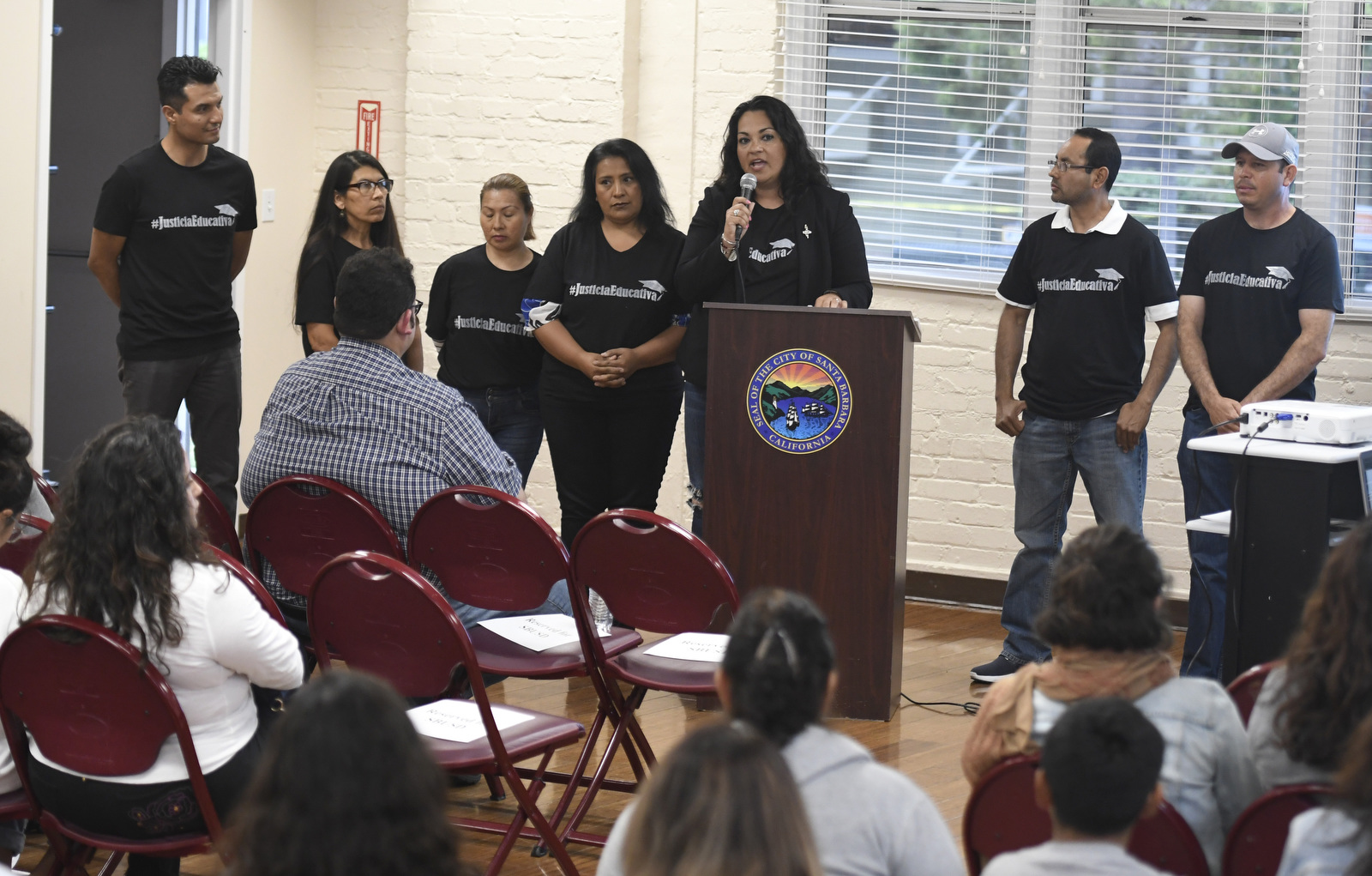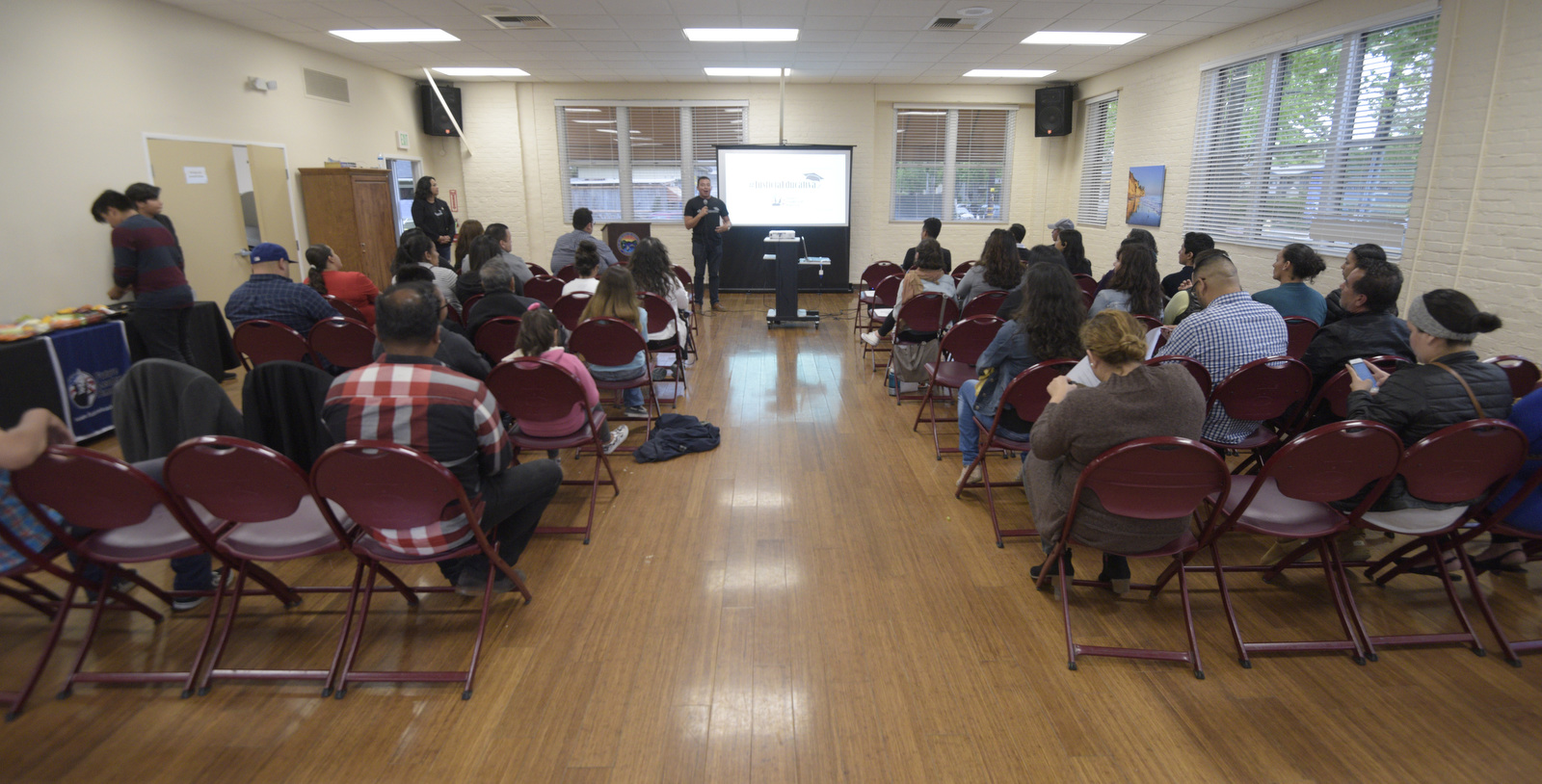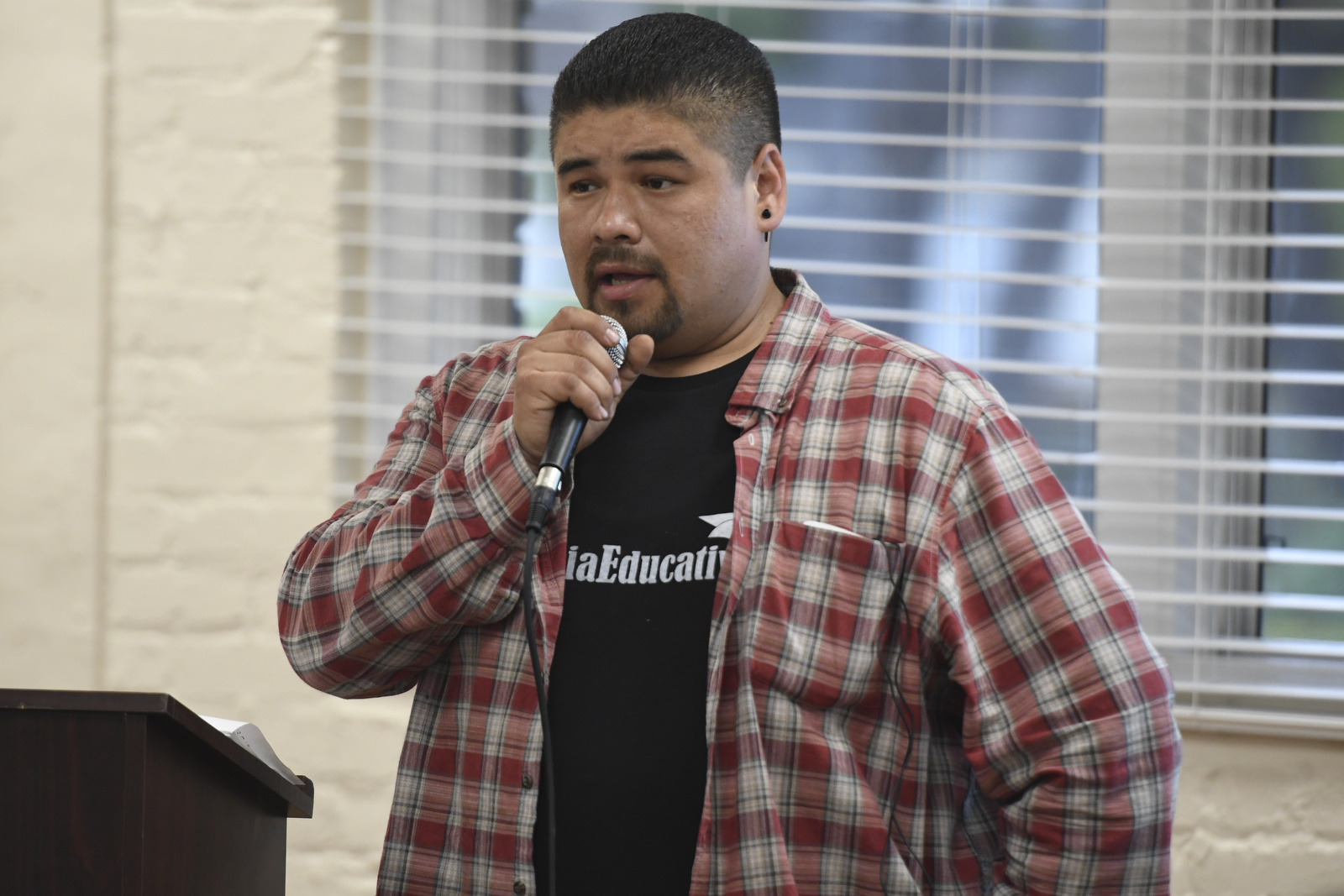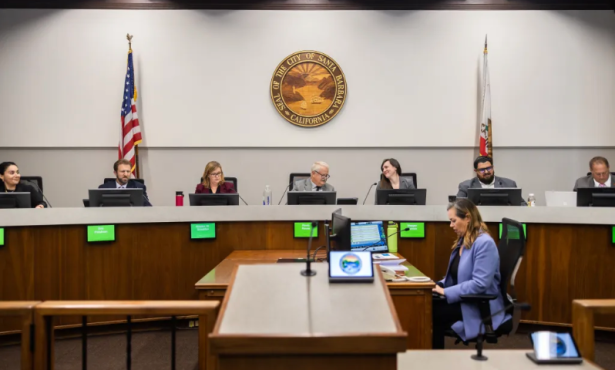Research Reveals Low Rate of College Attendance Among Latinos in Santa Barbara
Parent Group Wants Graduation Requirements Aligned with College Prep

Parents with Future Leaders of America (FLA) wore black shirts with the hashtag #JusticiaEducativa — #EducationalJustice — at their forum Wednesday at the Louise Lowry Davis Center. Half a dozen volunteer parents, led by FLA parent organizer Olivia Carranza, presented their eight-month-long project on the reasons behind low college-attendance rates in the Latino community. The presenting parents, and those in the crowd, had kids across all grade levels, and they all expressed a great desire for their children to have the same access to college as their white peers. “We’re tired of seeing how our kids are dismissed in the education system,” said Gerardo, a father of students in the Santa Barbara Unified School District.
FLA parents identified the largest deterrent between Latino students and entry to a four-year college or university as being their completion of A-G subject requirements, defined as social science, English, math, laboratory science, a language other than English, visual and performing arts, and college-preparatory electives. Claudia, a mother of four, said schools have mentioned A-G requirements but have never spelled it out in detail. She added that it was FLA who explained to her the importance of the requirements.

To be eligible for a four-year, students must complete A-G requirements in high school. According to FLA, this information, more often than not, reaches students and parents too late. Last year, only 43.9 percent of Latinos in the school district completed their A-Gs, meaning only 43.9 percent of Latinos in the graduating class were eligible to apply to four-year universities and colleges. This is an increase from the figure for the 2012-13 school year, which was 29.8 percent. But it’s still not good enough, parents agreed.
Parents expressed concern about students who speak a language other than English at home. Many of those students are classified as EL (English learners) or ESL (English as a Second Language) and placed in corresponding classrooms, unable to take college-prep coursework until they pass a proficiency exam that has been criticized as too rigorous by UC Berkeley’s Center for Latino Research. Vicente Garcia, a lead organizer for FLA, was himself classified as ESL while at the district. “We’re not ESL,” he said. “ We’re bilingual, we’re bicultural, and we’re much smarter than the schools make us out to be.”
FLA parents are proposing that the district align high school graduation requirements with A-G to ensure that all graduates have the opportunity to apply to a four-year college or university. This process is already underway, said Ismael Paredes Ulloa, a member of the district’s Board of Education. Until then, FLA parents will continue to educate other parents and their school-age children. Claudia said, “I’m here to speak for everyone so they can learn about A-G and students can achieve their dreams.”




